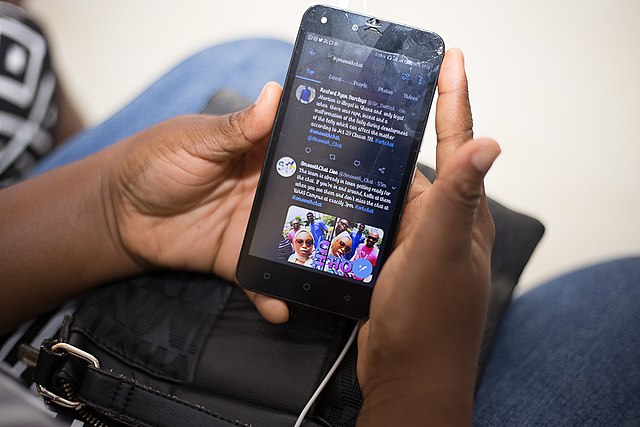Following is the latest set of reflections from my series on teaching “Storytelling and Communicating for Change” in the University of Vermont Masters of Leadership for Sustainability program. See my previous posts here.
I teach because the students always remind me how important it is to continue to love the questions…below are some excerpts from my interactions with them this semester.
Your copy needs you!
When something you write is very institutional, very logical, very grad school, very removed from lived experience, then the copy may be very “acceptable” to certain audiences. However, the copy is not “sticky” because there’s nothing there to connect the reader emotionally. As one student describes this, “My voice was erased by what was validated [by education],” i.e. facts and figures and definitive statements. (All of which are aligned to command and control.)
You may have explained the issue and solution comprehensively, but you have not been able to make your audience do something. Here’s the truth of my psychology as a reader: I need to see some zeal, passion, and have some human connection to galvanize me.
So bring your whole self to your writing or communications. Bring your ire, your excitement, your disappointment – whatever it is! How do we leave all our “academic training” behind to bring back in the joy, the possibility, the thing that makes you believe a different future is possible? What if we write for our readers in the social good space with the mindset of: “here’s what’s at issue, here’s why you should care, here’s how this issue came about, and here’s what you can do!”?
We’re just social animals, after all. If information only could change minds, wouldn’t the world be so different than it is? You don’t have to (and can never really) represent the totality of an issue, but the reader deserves to know your stake it in.
Blow back culture and toes in the water
No one wants to get shot down. Over the years, I’ve learned a lot about building my tolerance/emotional resilience to receive feedback on things I’ve written. I wish I could tell you that I’ve mastered it, but the truth is that good writing requires a bit of vulnerability, and I often have to remind myself that feedback is just an opportunity to learn more.
Because I was raised to fear open conflict and perfection and politeness were emphasized, I automatically default to an assumption that if I’m getting feedback then I must be rude or out of line. It’s not true. It does preserve power though. Society needs conflict – not in the way it’s portrayed by mainstream news media or reality TV, but because hard issues need to be raised, over and over, by multiple people.
So why *not* you?

Sharing stories and…yourself
Stories invite the teller and the listener/reader to be vulnerable. I wonder if that’s the biggest barrier to their use in the workplace? What in particular about “organizational life” impedes or betrays people’s authenticity and personal truths? What do you think is needed to overcome these obstacles? And could using storytelling internally help address them? There’s lots of beauty and confusion and history and complexity in social good organizations that is always ripe for storytelling.
As you experiment with when/how to share yourself and your stories, it will feel less vulnerable and just more true. All of these big and small personal details bring us – your readers and viewers – more closely connected to you. And that is where transformation together begins, so I’m very grateful whenever and however people reveal their true selves.
When we release some of the more difficult stories we carry – in the time that is right, with the people who can hold it – we start to see them as a source of strength and inspiration and as release/permission for others. Our stories can be fuel…for everyone, but not until we understand them for ourselves.
Shame and speaking up
Shame is a tool often used to reinforce hierarchies in organizational life. As a young, enthusiastic grad student at UNICEF Namibia, the Deputy Director pulled me into his office once specifically to scold me after I dared (!) submit a per diem request to the finance team for a workshop I was running(!) as a lowly intern. I still remember the condescending way he shook his head at me indicating “tsk tsk tsk.” All kinds of feelings of shame arose, as if I was a child who needed to be reprimanded, when in fact, I was just focused on getting work done. People in positions of authority use shame as a tool because it shuts down dissent and reinforces rules very efficiently and quickly.
I think a lot of perceived “risk” of speaking up is often a product of systems of oppression and our very human need to be accepted by those around us. Depending on how those systems affect us, we may relate to that risk differently. That’s why as leaders who have internalized oppression, it’s important to interrogate our fear of being “too much.” (It’s an installed instinct.) In my experience it’s often a tool of the patriarchy and other hierarchical systems intended to thwart dissent. That’s not to say the risk isn’t real, but we have to also weigh the risk (and very real cost) of not speaking up in how we show up in our organizations.
Over the years, I’ve learned to recognize that shame for what it is and is not, and let it flow through me so I can refocus at the task/issue at hand. I believe I learn more every time I have the energy and resolve to share my truth. Yes, there are consequences for speaking up; you can be misunderstood, judged, shut down, chastised, fired. But often what we imagine in our heads isn’t near to the actual result. What I have always found when I push through the discomfort of sharing my actual perspective/truth is this: People thank me. My truth resonates with others. It ushers in confidence, energy, and encouragement for others to do the same. And after all, it is the speaking up time.
Whatever happens, you learn.
Ever-evolving expertise
Claiming your expertise is important because so many of us are taught to minimize our strengths and contributions within institutions ruled by dominant culture. Sharing your own experience, specifically, actually sets up your credibility in an authentic way. It is not boastful, it is true.
And it’s ok that your expertise and story will change over time. And that is in and of itself important to represent – sharing our own learning and evolution is what engenders and invites transformation in others. Sharing specifics of that journey also legitimizes you to the reader/listener.
The contradiction in the urge to hide under the “curse of knowledge” blanket and yet resist claiming your own expertise is one to always keep exploring.
Healing beyond the “quick click”
As a nonprofit communicator, my constant battle is to be true to wholeness/potential, and invite the well-meaning do-gooders to think deeper – and into healing. Not an easy task, because under late-stage capitalism, people have now been sold what it means to “make a difference,” making it a quick click rather than long-term, action-oriented experience.

When I have experienced healing within relationships, families, and communities, the complexity of individuals and the potential of humanity emerges. So how do we begin to communicate not just about this, but with this at the core of our content? For example, people can be “reliable” and “poor” at once. People can be “salt of the earth” and “complicated.”
Indeed it’s impossible to capture the wholeness of any one person or story, especially when what you’re writing has to serve an agenda, investigate an issue or organization, or deliver on already-set expectations. I think that’s why it’s so important for organizations to declare their communications philosophy, so that all people within the organization can be on the same page and call in each other as necessary.
Audience, analysis, and assumption
Making assumptions about our audiences can be uncomfortable. The good news is that any “audience segment” we select is always of our own choosing, and can be altered. Audience analysis exercises are not something to be shared publicly and so they can continue to evolve. Luckily it’s not shared also because it’s always a back and forth with messaging. As you learn more in practice or through information gathering exercises like focus groups, you are checking your own assumptions and making adjustments (hopefully). The point is to put ourselves in others’ shoes and think through their motivations, which might be very different than ours, as we develop messages we hope will reach them. Also if we don’t try to put ourselves in the shoes of people on the “other” side or those with other perspectives, then we stay in our safe bubbles.
Weighing choices, recognizing power, continuing to learn
The “consequences of the unavoidable tradeoffs” in communications are especially important where/when there’s less opportunity/time to build trust and understand power dynamics that might not be readily apparent to some. The larger the organization, the less likely it is that permission and feedback has been a part of drafting content, unfortunately. Large international organizations often get this balance wrong, for many reasons, which is why we wrote The Development Element.
Leaders are communicating every day, all day, publicly or not. How to “be heard” is necessarily (and luckily) an ever-evolving experiment.
Why bother
Perhaps in some ways, all of the hard stuff is the mechanism in the Universe to bring us close to oneness, all of it. ~Megyung Chung
And perhaps this sentence is why I attempt to teach this class at all. I dream of the day when we focus our communications in the “social good” sector/space not on fundraising or “influence” or “awareness”, but rather bringing us all closer to oneness.

